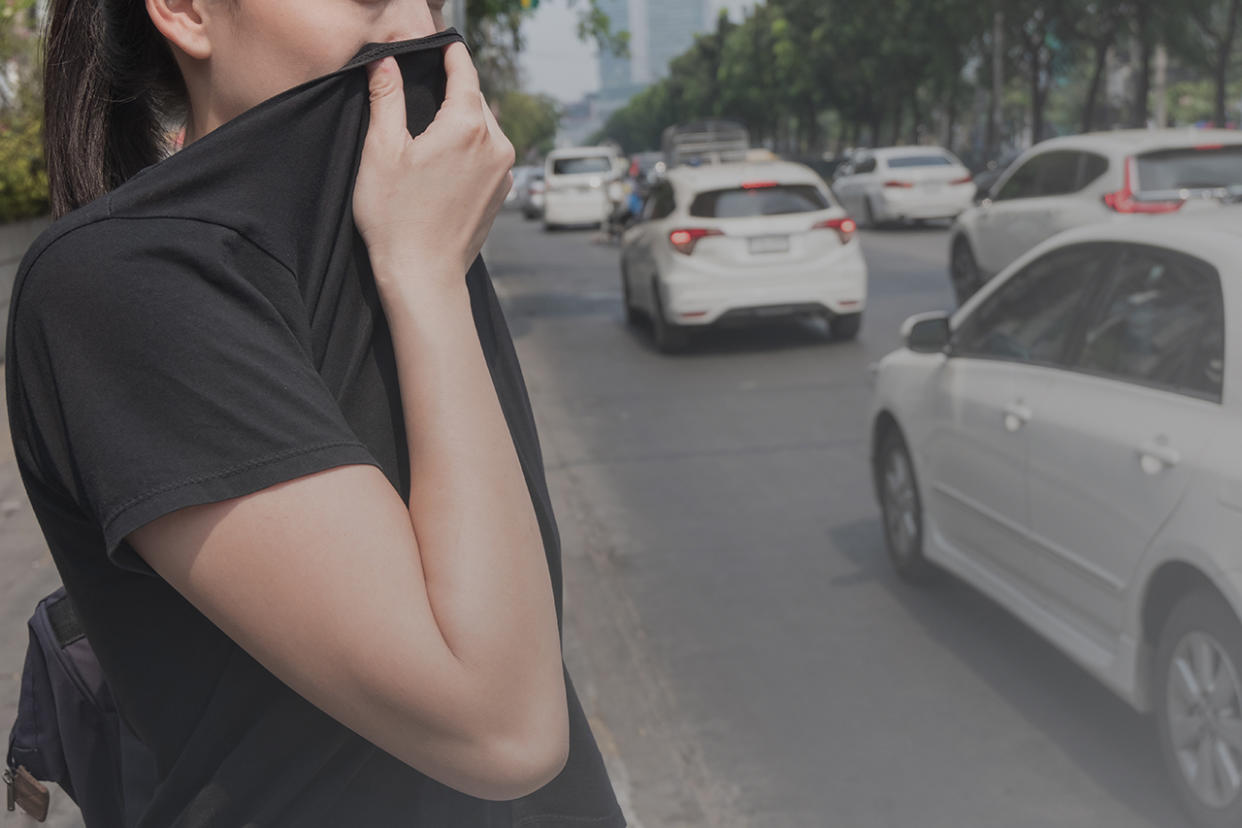Climate change and pollution make allergies worse: 'Like pouring salt on the wound'

It can seem like air pollution and climate change have nothing to do with how you feel during allergy season, but research shows they're closely linked.
Studies have found a connection between air pollution and higher rates of asthma, hay fever and other allergy issues. Pollutants such as ozone, nitrogen dioxide and fine particulate matter produced by automobile exhaust and industrial power plants can ramp up allergens circulating in the air, making you sicker in the process.
"Ozone and particulates, especially carbon black, soot and related components of PM 2.5 [fine particulate matter] air pollution are powerful irritants that can readily trigger exacerbations of not just allergies, but also asthma, sinusitis, chronic obstructive pulmonary disease (COPD) and other conditions," Dr. David Corry, a professor of medicine in the section of immunology, allergy, and rheumatology at Baylor College of Medicine, tells Yahoo Life.
Pollution can also make allergies feel worse. "Air pollution can irritate the airway similar to how allergens might — it's like pouring salt on the wound," Dr. Ted Kelbel, section chief for allergy and immunology at Spectrum Health, tells Yahoo Life. "If you're already irritated when you have allergen exposure, it can make allergies worse."
Being regularly exposed to pollution may also predispose you to developing allergies in the first place, Dr. Purvi Parikh, an allergist with Allergy & Asthma Network, tells Yahoo Life. "Increasing levels of ozone and particulate matter actually increase inflammation in your airways and weaken or sensitize your airways to become more allergic," she explains.
Global warming is now causing very long and more potent pollen seasons.Purvi Parikh
Rising global temperatures can also make your allergies worse. "Global warming is now causing very long and more potent pollen seasons," Parikh says. "Plants feed off carbon dioxide and thus produce more pollen."
That's a problem that's expected to continue. According to National Oceanic and Atmospheric Administration's 2020 Annual Climate Report, the combined temperature on land and the ocean has risen at an average rate of 0.13 degrees per decade since 1880 — and it's rapidly accelerating. The average rate of increase since 1981 — 0.32 degrees — is more than twice the previous rate. "As spring and fall seasons get longer, it gives more rise to allergy symptoms," Kelbel says.
Doctors say there are a few things you can do to reduce your risk if you live in an area where air pollution is common. Parikh recommends working with an allergist to get tested to learn exactly what your allergy triggers are. Then, Kelbel advises, "Try to avoid known triggers."
That may mean taking steps such as avoiding going for a run during the highest pollution times, like during rush hour, and doing your best to restrict your outdoor time to early in the morning before pollutants have had a chance to rise, as well as after it rains, which helps remove pollutants from the air. You can also track air pollution levels in your area through AirNow, and then do your best to stay indoors as much as possible on high pollution days, Corry suggests.
But, doctors stress, working with a board-certified allergist is ultimately your best bet: They can help you figure out your triggers and find the right treatment for you.
Read more from Yahoo Life:
6 surprising back-to-school allergens — and how to protect your child
Struggling with indoor allergies? Here are 5 simple tricks you can do right now
Follow us on Instagram, Facebook, Twitter, and Pinterest for nonstop inspiration delivered fresh to your feed, every day



